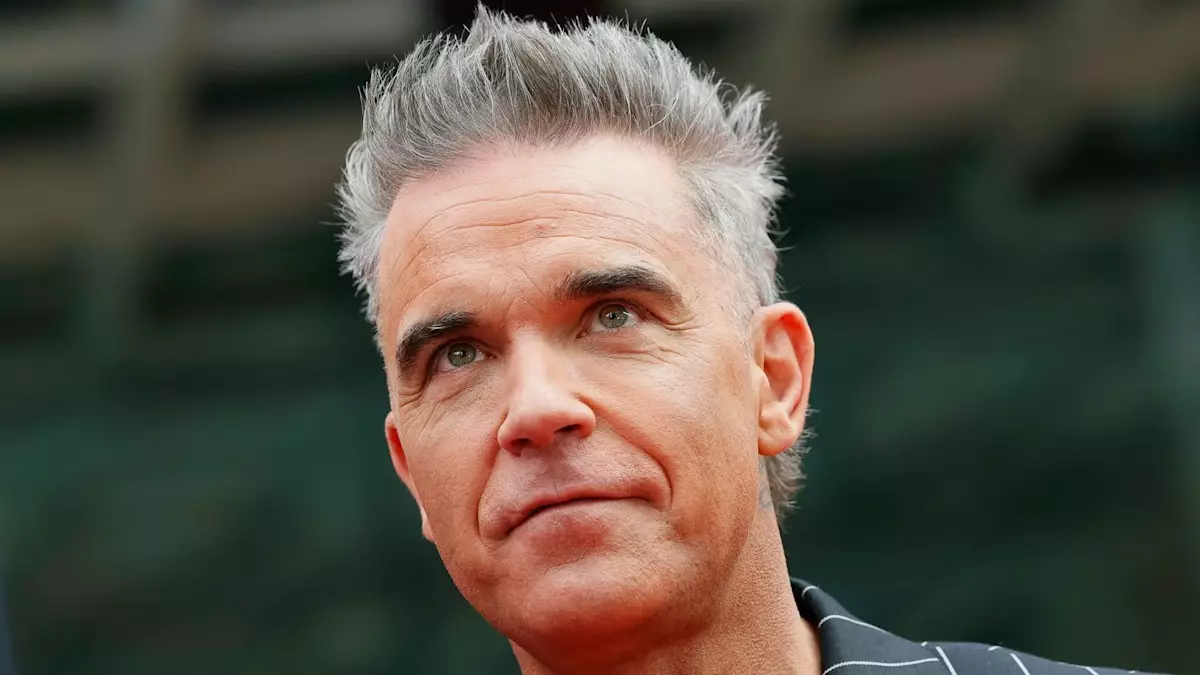In a candid revelation, Robbie Williams has addressed the complexities of being in a boy band, notably his experience with “boy band dysphoria” during his time with Take That. His recent Instagram post sheds light on the emotional toll of fame, touching on themes of addiction, mental health, and the ephemeral nature of success in the music industry. At 50 years old, the superstar offers an introspective look back at his career, prompting reflection not just for himself but also for his fans and the music community at large.
In his post, Robbie contrasted the different paths taken by boy band members, describing a recurring pattern of struggle among them. Some manage to navigate their experiences through mindfulness and rehabilitation, while others remain trapped in a cycle of emotional distress stemming from their early days in the spotlight. This perspective shines a light on the psychological ramifications of fame, particularly for young musicians thrust into the limelight with little preparation for the pressures that come with it.
Robbie’s use of the term “boy band dysphoria” encapsulates a unique phenomenon faced by many young stars. The pressure to maintain a particular image while grappling with personal identity issues can result in significant mental strain. Williams, along with his bandmates—Gary Barlow, Howard Donald, Mark Owen, and Jason Orange—operated under scrutiny not just for their music but also for their behavior, relationships, and lifestyles. The impact of this experience extends beyond their professional lives, often manifesting in substance abuse, eating disorders, and other mental health challenges.
Central to Robbie’s narrative is his own battle with addiction—a challenge he openly acknowledges in light of comments made by his former manager, Nigel. Williams emphasized that his drug addiction was not a byproduct of external circumstances alone, but rather a personal struggle that required profound self-reflection and understanding. He firmly stated, “My drug taking was never your fault,” which underlines the core of addiction: it is a deeply individual and complex experience.
Robbie’s transparency about his past does not invalidate the experiences of others but rather adds a layer of richness to the conversation surrounding addiction in the entertainment industry. He also pointed out that the misconceptions surrounding addiction are all too common, illustrating a lack of understanding that often exists among those not affected by these struggles. By challenging Nigel’s views, he highlights a critical aspect of addiction discourse: the importance of recognizing and respecting individual experiences.
Robbie’s post extends beyond his struggles, as he briefly acknowledged the challenges faced by his bandmates, bringing their personal battles into the open. For example, Mark Owen’s issues with alcoholism and Gary Barlow’s eating disorder are not just footnotes in their stories but integral elements that shaped their lives as performers. By recognizing these shared experiences, Williams fosters a sense of solidarity and invites a deeper understanding of the collective trauma often endured by boy band members.
Furthermore, his mention of Jason Orange, who remains distanced from the band, sheds light on the emotional consequences of their fame. It raises an important question: How do the pressures of celebrity affect personal relationships? In Jason’s case, the pain associated with his time in Take That has led him to withdraw—a haunting testament to the long-lasting scars that fame can leave behind.
Robbie Williams’ emotional openness marks a critical component of his healing journey. By sharing his vulnerabilities, he demystifies the struggles tied to addiction and the pressures of public life. His journey through rehab and the reconciliation with his wife, Ayda, underscores the complexities of maintaining relationships in the face of such challenges. It is a story of resilience, where love ultimately prevails despite the tumult of the past.
Robbie Williams’ reflections serve not only as a personal catharsis but also as an essential conversation starter about the psychological effects of fame, addiction, and the collective experiences of boy band members. Through his narrative, he encourages empathy and understanding, urging others to recognize the often-hidden struggles faced by those in the spotlight. As Williams continues on his path toward healing and understanding, his story exemplifies a turn towards greater openness in an industry that too often demands silence.
